1. Introduction
KAAH, registered Somalia non-governmental organization (NGO) providing humanitarian
assistances to various groups of people in various regions of Somalia. The organization upholds
the IASC core principles relating to prevention of sexual exploitation and abuse as well as the
child protection policy. The organization has for long used both the national and international
standards for the protection of all stakeholders involved in the activities of the organization.
These core principals of IASC are mainstreamed throughout the organization;
1. “Sexual exploitation and abuse by humanitarian workers constitute acts of gross
misconduct and are therefore grounds for termination of employment.
2. Sexual activity with children (persons under the age of 18) is prohibited regardless of the
age of majority or age of consent locally. Mistaken belief regarding the age of a child is
not a defence.
3. Exchange of money, employment, goods, or services for sex, including sexual favours or
other forms of humiliating, degrading or exploitative behaviour is prohibited. This
includes exchange of assistance that is due to beneficiaries.
4. Any sexual relationship between those providing humanitarian assistance and protection
and a person benefitting from such humanitarian assistance and protection that involves
improper use of rank or position is prohibited. Such relationships undermine the
credibility and integrity of humanitarian aid work.
5. Where a humanitarian worker develops concerns or suspicions regarding sexual abuse or
exploitation by a fellow worker, whether in the same agency or not, he or she must report
such concerns via established agency reporting mechanisms.
6. Humanitarian workers are obliged to create and maintain an environment which prevents
sexual exploitation and abuse and promotes the implementation of their code of conduct.
Managers at all levels have particular responsibilities to support and develop systems
which maintain this environment.”
KAAH organization, staff and stakeholders are encouraged to uphold the principles and oblige
with them in every aspect.
KAAH organization staff are committed in promoting and depiction of ethical and professional
oblige to the principles of preventing sexual exploitation and abuse (PSEA).
3
Relevance of PSEA to the Organization Operations
In organization operations, where staff are hired very, it is particularly important to highlight and
uphold PSEA policies and the KAAH organization Code of Conduct. Staff are required to create
and sustain an environment that Prevents Sexual Exploitation and sexual Abuse (PSEA). KAAH
organization managers have a particular responsibility to advocate for this. The relationship
between humanitarian workers and beneficiaries are mostly and inherently unequal in terms of
power relationships and levels of authority, staff must be vigilant and rigorously avoid any action
(suggested, implied or perceived) that would suggest or imply that a sexual act might be
demanded as a condition for protection and material assistance or services.
Sexual exploitation by organization staff can be been associated with the provision of
humanitarian assistance and is intolerable. KAAH organization protects women, girls and boys
in particular to prevent exploitation by workers and other parties who could provide or withhold
food, shelter, education or medical care. In addition, vulnerable individuals who may be abused
by officials in positions of authority, such as host areas for IDPs will be protected by the
organization. KAAH and its partners should ensure that mechanisms are in place from the outset
that prevent and sanction exploitation or abuse at any point during an emergency. Any act of
sexual exploitation and abuse is considered as serious misconduct and should be immediately
reported to the organization management.
2. Scope of KAAH Prevention of Sexual Exploitation and Abuse (PSEA)
The PSEA applies to everyone working for or associated with KAAH
1. All Staff Members and Resource Persons based in Head Office, Project offices in field
areas or elsewhere.
2. Other Members- Members of Board, Volunteers-Students, Corporate and community
volunteers, contractors and others who may come into contact with the beneficiries
through KAAH.
3. Guests/Visitors- donors, journalist, media, researcher, celebrities etc who may come into
contact with the beneficiaries through KAAH
4
4. Implementation guidelines
4.1 PSEA awareness program
1. Organize regular awareness program on PSEA to Staff Members, Volunteers, community
leaders, field volunteers.
2. Impart special training to Project Staff on PSEA regularly.
4.2 PSEA Program intervention
1. Design interventions with rights-based approach- responding to needs, sensitizing and
empowering PSEA, giving voice to the benefactors.
2. Making Community advocacy program on PSEA and gender issues integral part of all
interventions
3. Mobilizing and sensitizing women/ mothers in order to make them and their spouse
responsible for well being of children and prevention of exploitation, abuse
4.3 PSEA Compliance mechanism
1. Background verification, past experience and aptitude, interest in education sector and
teaching benefactors to be important considerations, in addition to essential and desired
qualification of candidates to be eventually recruited – full time or part time. Similar
verifications are to be done prior to appointing project staff, Community volunteers, interns,
consultants etc. All persons shall be informed about CPP and PSEA.
2. Establish a Child Protection Committee (CPC) and Preventing Sexual Exploitation and Abuse
(PSEA) in organization consisting of Senior Program coordinator, Program Manager/Officer,
Campaigns and Advocacy Officer (Officer-IEC), Members from Community (social workers)
and youths (KAAH’s Alumnus)- under overall supervision of the Executive Director of the
organization. Necessary functional linkages with local MLA, Police and Hospital shall be
established.
5
3. Capacity building of staff members working with children and benefactors in projects, to
effectively deal with and promote PSEA and to help protect from any kind of exploitations and
abuse.
4. Monitor staff’s performance and conduct to ensure the same is in tandem with philosophy,
mission and vision of KAAH and also culturally sensitive.
5. All personnel –staff, volunteers, interns, consultants, visitors or anyone else connected with
KAAH will not spend time alone with a beneficiary, nor touch a child inappropriately or make
beneficiary feel insecure.
6. Beneficiaries must not only be heard, but also encouraged to voice their concerns and
problems. All staff, volunteers and whoever come into contact with children must ensure it.
However, it must be watched and suitably guided that their interactions are friendly and decent.
7. Children must be weaned away from labour- domestic servant. They must not be employed as
domestic worker by staff.
4.4 Complaints/ Allegations handling
1. Any complain regarding incident of misbehavior with (abuse) in any program implemented in
the target community shall be reported to the Protection Committee constituted under KAAHwhich will, first of all, facilitate medical care to the victim, if need be; subsequently carry out a
thorough unbiased investigation or if need be, get First Information Report (FIR) filed and take
help from local police for appropriate legal process and actions.
2. PSEA, Protection Committee (CPC) members of KAAH shall extend moral support to parents
and the victim (child) and if need be; help to file the First Information Report (FIR) at the local
police station. Protection Committee has the responsibility of informing the abuse case
immediately to the President of KAAH who will then initiate appropriate legal recourse – dealing
the case with due sensitivity and confidentiality.
3. In case the wrongdoer is a staff member or any other person connected with KAAH, the
matter shall be reported to the Somalia Government Officer of the Protection Committee (PC)
constituted, the alleged person put under suspension with immediate effect, initiate appropriate
6
investigations in house or, if need be, through official machineries; the accused person to be
reinstated only after being found innocent by investigations done.
4. Beneficiaries or children subjected to abuse, more often than not, gets psychologically upset
which is very traumatic, leaves deep scar on mind, often faced with conflicting emotionsconfusion, fear, anger, shame, depression- result into lack of confidence, low self-esteem. Such
upheaval may have serious repercussions later in life. Understandably, due personal care along
with professional, effective counseling is critical and must be provided.
5. Often, there is request received by KAAH for sponsorship of child’s education. It is to be
ensured that no inappropriate requests are encouraged from the sponsor and entertained both at
organization’s level and the same in correspondences from sponsor to the sponsored child.
6. KAAH shall encourage visits by donors and also sponsors of child’s education to projects on
receiving prior permission. If requested, Sponsor may be facilitated visit to sponsored child’s
home accompanied by staff member of KAAH and only with the consent of the family.
However, it shall be always insisted that sponsor meet the child in KAAH’s Head Office.
4.5 Child Protection Policy issues
1. As per compliance of Right To Education (RTI) Act of the government of Somalia, KAAH
has been included in School Management Committee (SMC) of local school in various regions
of Somalia. KAAH therefore endeavors to influence relevant changes in public policy that will
strengthen Child Rights and protection to children through different levels of government and
child rights forums of NGO.
2. It will be networking and collaborate with likeminded individuals and institutions for sharing
knowledge and experiences (best practices); and support advocacy campaigns on child
protection, development and promote children’s participation.
3. KAAH shall ensure that pictures/captions in all literature, documents and IEC materials on
children are not offensive, commercializing poverty and miseries.
4. It is committed to keep information about children confidential. Child abuse incidents to be
kept as confidential and handled with care and concern. Ensure Information about any such
7
incident is shared with people only if it is deemed necessary by Child Protection monitoring
group and ensure names and identities are not disclosed outside or to the media.
5. Contractors & Vendors
1. KAAH shall make Contractors & Vendors aware of its PSEA and make them agree to adhere
to it.
Annexure- I Prevention of Sexual Abuse and Child Protection Committee
KAAH NGO The reconstituted Prevention of Sexual Exploitation and Abuse and Child
Protection Committee at KAAH NGO shall have the following Members:
1. Mr. Ali Dahir Wehlie – Chairman and PSEA chairleader
2. Mr. Abdikadir Mustaf (Program coordinator) – PSEA Vice Chairperson
3. Mr. Okiya Jimmy (Human Resource Manager) – Secretary
4. Mr. Hussein Abdulle Hallane (Operation Manager ) – Member
5. Mr. Abdifatah Mohamed (Program officer) – Member
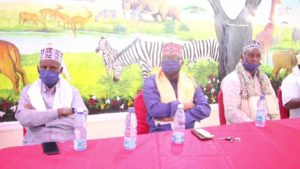
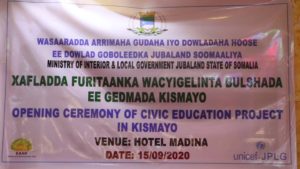
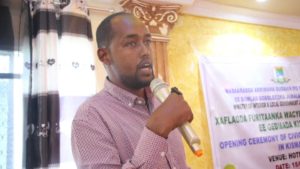
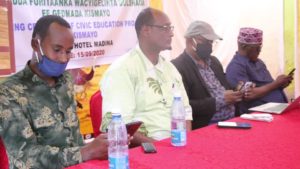
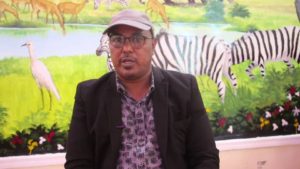
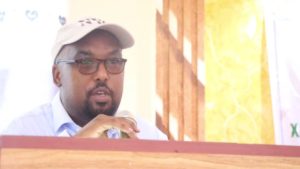

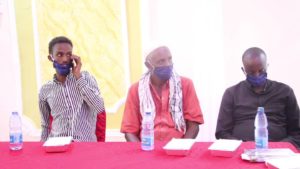
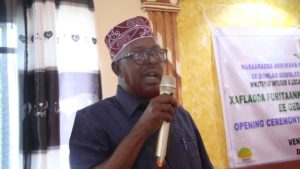
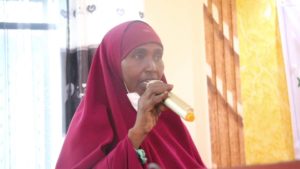


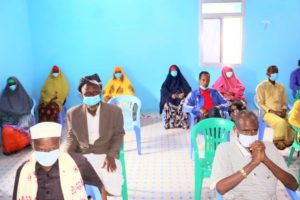

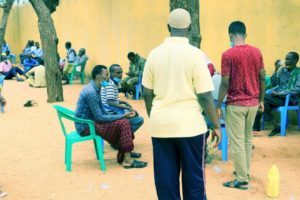

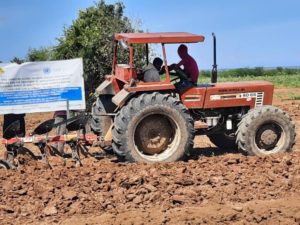
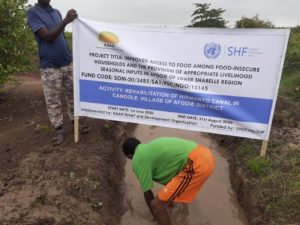
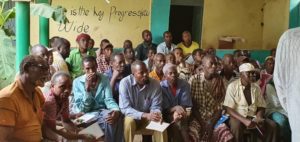
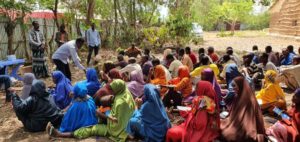
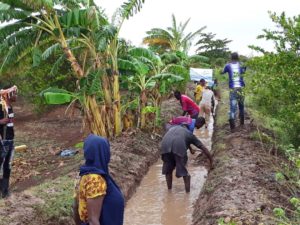
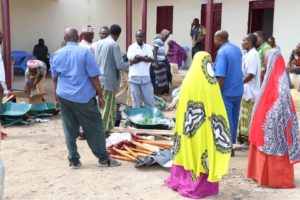

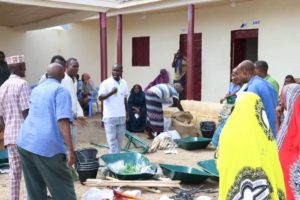
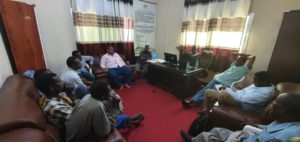


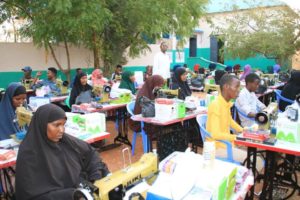
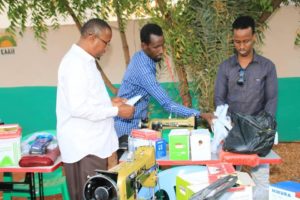
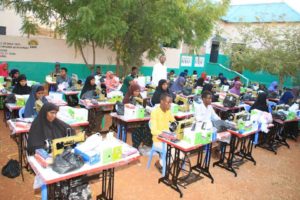
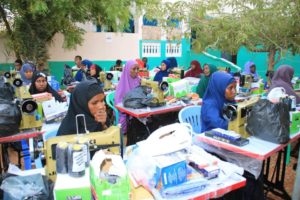
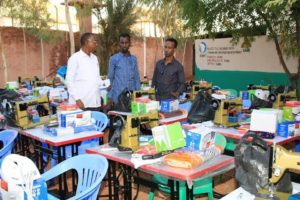


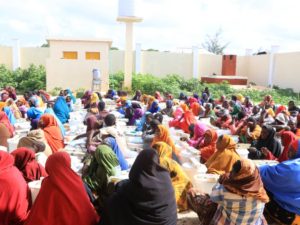
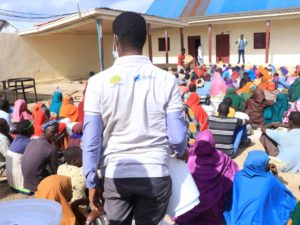
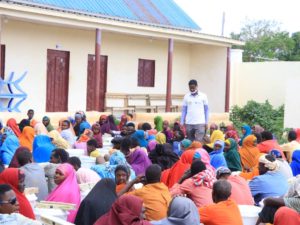
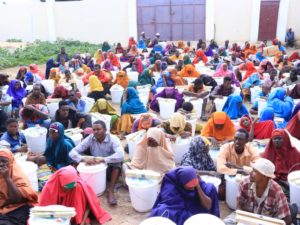

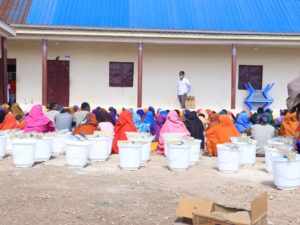
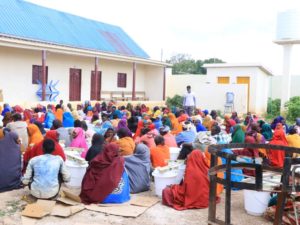
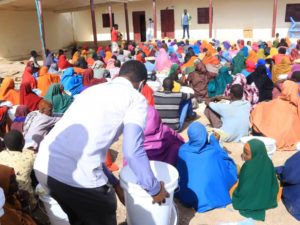
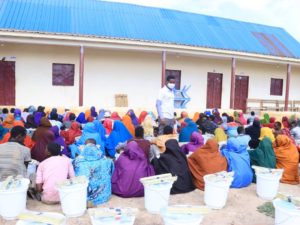



Recent Comments